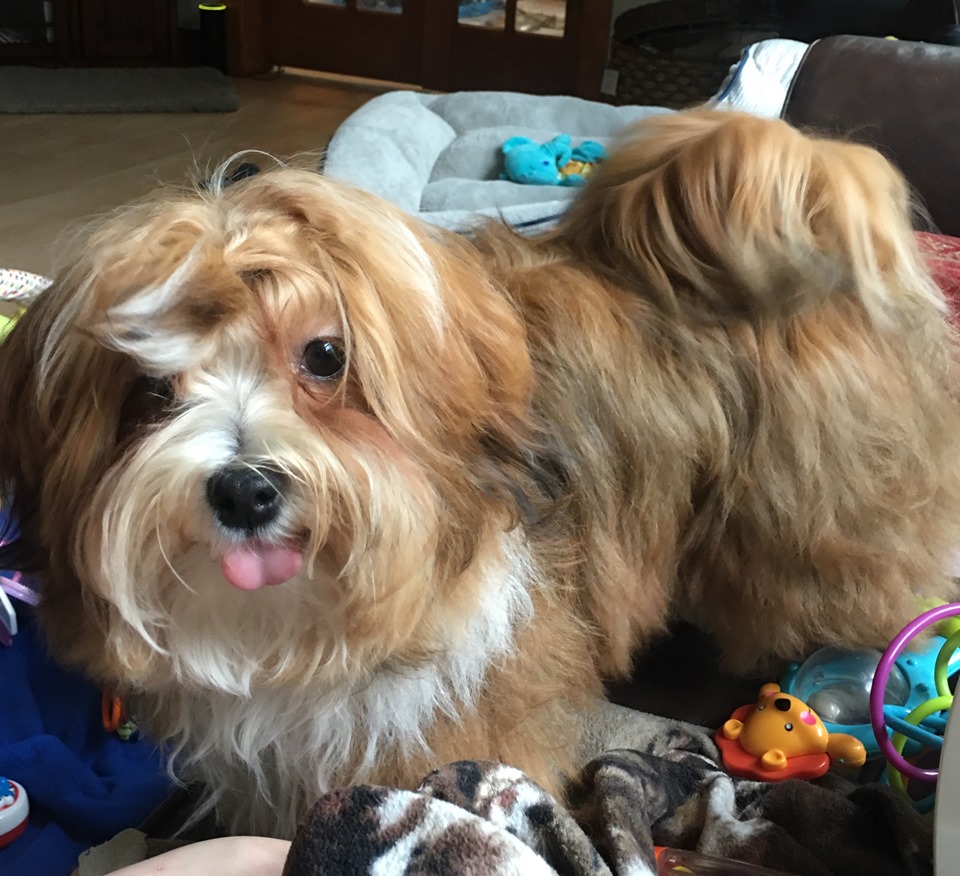About The Havanese

The Havanese is a small, sturdy dog that originated in Cuba. The Havanese was recognized by the American Kennel Club (AKC) in 1999. Since then, they have been slowly growing in popularity. The Havanese ranges in size from around 8 to 16 lbs. They come in any color and have beautiful almond-shaped eyes. They are extremely friendly and are willing to please. They catch on to learning tricks easily. One of the most unique things about a Havanese is its very soft, profuse double coat. Although they can grow long coats, they do not shed. They are said to be hypoallergenic because of this. In our home, we are somewhat allergic to dogs, yet does not react to the Havanese. Also, they seem to be odorless, meaning that the pads of their feet usually do not give off the "dog smell" like other breeds.
As the Havanese is still a relatively uncommon breed, health issues within are not as prevalent as in some of the other toy breeds. Breed health preservation relies on careful, intentional breeding with attention to genetics. They are generally not "barky" dogs and are sturdy for their size. In our experience, they are generally not diggers, and get along well with the young and old, as well as other pets. They are a low-to-medium energy breed, and do best with other dogs that are of similar energy. Havanese can make wonderful therapy dogs with training, and excel in conformation, obedience, and agility.
The Havanese is not a breed that does well left home alone for long hours. They are "velcro dogs" and love to be in the company of their people. To be a responsible owner, those who work full time, or are gone for long hours, must make accommodations. Havanese can also be more difficult to housetrain than large breeds. Havanese prefer the company of their family as opposed to strangers, and often take time to warm to visitors.
The Havanese Club Of America suggests several health tests that should be completed on any breeding adult Havanese. Reputable breeders complete OFA screens for hip dysplasia, patellar luxation, hearing, heart and eye anomilies. Bile acid and thyroid testing are also appropriate. All dogs used in breeding programs should be clear of all testable hereditary health issues.
We cherish the havanese and strive to protect the integrity and quality of the breed. Please contact us with any breed-specific questions. We have many years of experience with these little guys and would love to share our knowledge with you!